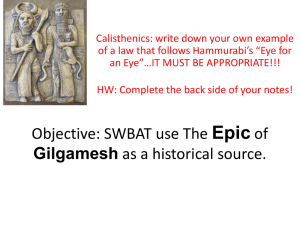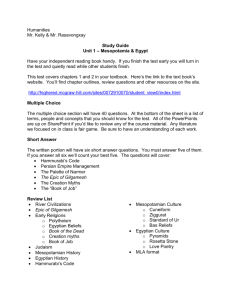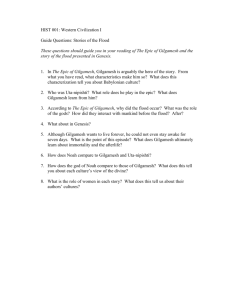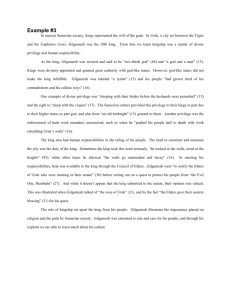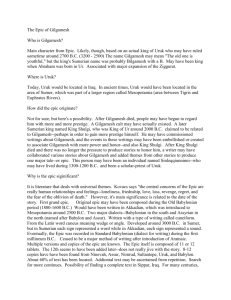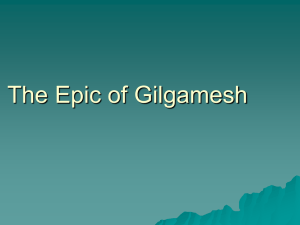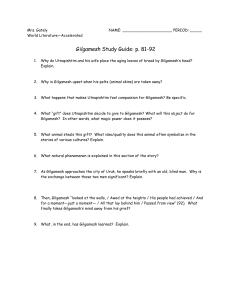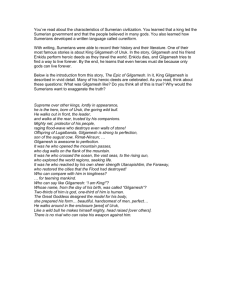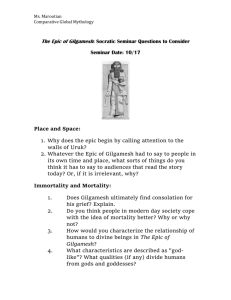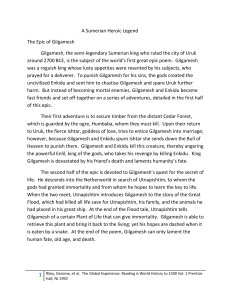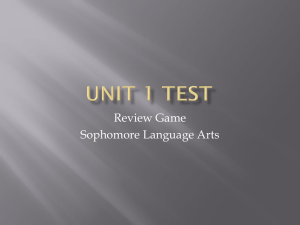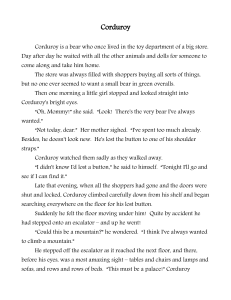THE EPIC OF GILGAMESH
advertisement
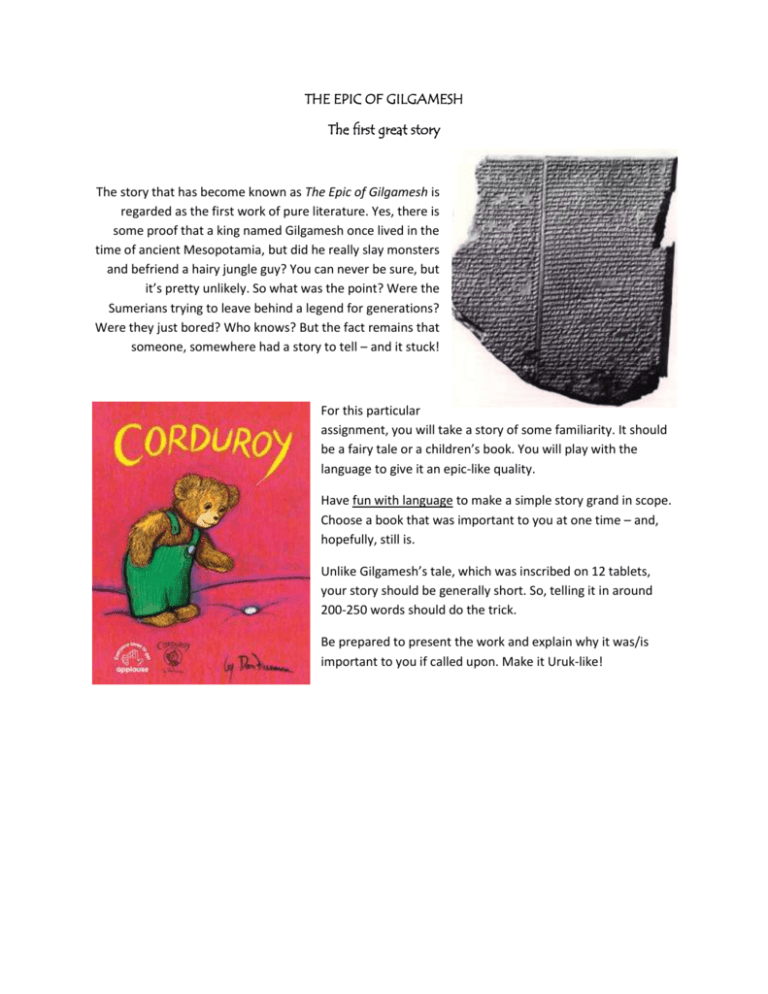
THE EPIC OF GILGAMESH The first great story The story that has become known as The Epic of Gilgamesh is regarded as the first work of pure literature. Yes, there is some proof that a king named Gilgamesh once lived in the time of ancient Mesopotamia, but did he really slay monsters and befriend a hairy jungle guy? You can never be sure, but it’s pretty unlikely. So what was the point? Were the Sumerians trying to leave behind a legend for generations? Were they just bored? Who knows? But the fact remains that someone, somewhere had a story to tell – and it stuck! For this particular assignment, you will take a story of some familiarity. It should be a fairy tale or a children’s book. You will play with the language to give it an epic-like quality. Have fun with language to make a simple story grand in scope. Choose a book that was important to you at one time – and, hopefully, still is. Unlike Gilgamesh’s tale, which was inscribed on 12 tablets, your story should be generally short. So, telling it in around 200-250 words should do the trick. Be prepared to present the work and explain why it was/is important to you if called upon. Make it Uruk-like! EPIC OF GILGAMESH He who has seen everything, I will make known to the lands. I will teach about him who experienced all things. Anu granted him the totality of knowledge of all. He saw the Secret, discovered the Hidden, he brought information of (the time) before the Flood. He went on a distant journey, pushing himself to exhaustion, but then was brought to peace. Supreme over other kings, lordly in appearance, he is the hero, born of Uruk, the goring wild bull. He walks out in front, the leader, and walks at the rear, trusted by his companions. Mighty net, protector of his people, raging flood-wave who destroys even walls of stone! Offspring of Lugalbanda, Gilgamesh is strong to perfection, son of the august cow, Rimat-Ninsun;... Gilgamesh is awesome to perfection. It was he who opened the mountain passes, who dug wells on the flank of the mountain. It was he who crossed the ocean, the vast seas, to the rising sun, who explored the world regions, seeking life. He walks around in the enclosure of Uruk, Like a wild bull he makes himself mighty, head raised (over others). There is no rival who can raise his weapon against him. EPIC OF CORDUROY In a gargantuan temple of commerce a young ursidae doth dwell. His fur like the linens of an infant. His coveralls the color of the emerald forest. Yet, this bear, Corduroy beith his name, misses his clasp of perfection – a button. For this poor missing item, the bear is cast aside unwanted by the youth who enter his realm, choosing playthings of lesser quality and majesty. Yet there is one, the young female known as Lisa, who sees the true beauty of our hero. However, the poor fortunes of her clan render her unable to obtain Corduroy for her own. Thus, Corduroy embarks on a grand quest to find his missing clasp, ascending moving mountains and entering abandoned palaces. Finally, he sees the item of his desire, but it remains fastened to its positioning. Only great courage and strength allow the bear to remove the button, yet he is caught by a roaming guardsman. Remaining brave, the small bear allows the sentry to take him into custody. In the end, Corduroy’s bravery and truth to self are rewarded. Young Lisa returns with her own small fortune to rescue Corduroy from his commercial incarceration to return him to a place of happiness and sanctuary. And, once there, a new clasp is affixed to the bear’s tunic. A whole bear – with a happy heart and a mended garment – once more.
